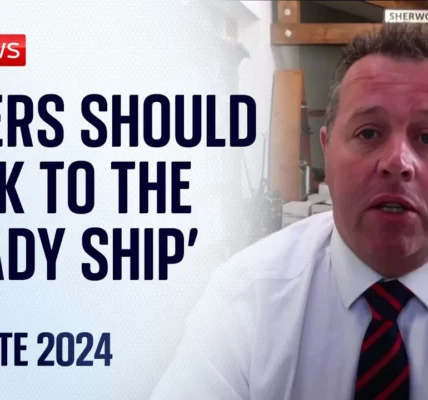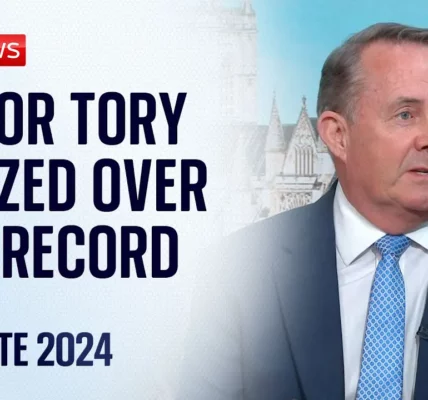Tonight, Labor Takes on Nimes: The Road to Growth

In this article, we delve into the recent political developments in the UK as the new Labor government, led by Prime Minister Keir Starmer, embarks on an ambitious agenda focused on economic growth, housing, and renewable energy, with key insights from Chancellor Rachel Reeves.
Introduction
The political landscape in the UK has undergone a significant transformation following the recent election that saw the Labor Party return to power. Under the leadership of Prime Minister Keir Starmer, the government is now focused on addressing pressing issues that include economic growth, housing shortages, and the need for renewable energy initiatives. With the new Chancellor, Rachel Reeves, at the helm of economic policy, the government is poised to implement a range of reforms aimed at revitalizing the economy. This article explores the implications of these developments and what they mean for the average citizen and the future of the UK.
The Labor Government’s Focus on Growth
The cornerstone of the new government’s strategy is a robust focus on economic growth. The question remains: how can the government stimulate growth without imposing higher taxes or compromising fiscal responsibility? The answer lies in a multi-faceted approach that aims to enhance public services while fostering a conducive environment for economic expansion.
Rachel Reeves’ Vision
Chancellor Rachel Reeves has articulated a clear vision for economic recovery that centers on several key initiatives:
- Revamping the planning system to accelerate the construction of new housing.
- Ending the moratorium on onshore wind farms to boost renewable energy production.
- Introducing new housing targets aimed at addressing the UK’s housing crisis.
In her first major speech, Reeves emphasized the urgency of these reforms, stating, “We have promised a new approach to growth.” This commitment to action is particularly crucial given the backdrop of sluggish economic performance compared to other OECD countries.
The Challenge of Achieving Growth
Despite the clear intentions of the new administration, achieving sustained economic growth is fraught with challenges:
- Unpredictable External Factors: Global events and national crises can derail even the best-laid plans.
- Public Sentiment: Many citizens express concerns about the impact of new developments in their communities.
- Legislative Hurdles: The need for parliamentary support and consensus can slow down the implementation of new policies.
Reeves acknowledges these challenges, stating, “You can do all the right things, but a big international event can change everything.” The government’s approach, therefore, will require agility and adaptability.
Infrastructure Development as a Growth Strategy
Central to the government’s growth strategy is the revitalization of infrastructure, particularly in housing and renewable energy.
Housing Initiatives
The government has set ambitious housing targets aimed at addressing the significant shortfall in housing availability across the UK. Key components of this initiative include:
- Creation of more affordable housing units.
- Incentives for private developers to participate in housing projects.
- Streamlined planning processes to expedite construction.
These efforts are essential for ensuring that the UK’s housing market can meet the demands of its growing population.
Onshore Wind Farms and Renewable Energy
Ending the ban on onshore wind farms is a pivotal move in the government’s renewable energy strategy. This decision reflects a broader commitment to sustainability and energy independence. Key benefits of this initiative include:
- Increased energy production from renewable sources.
- Reduction in reliance on fossil fuels.
- Creation of new jobs in the renewable energy sector.
By prioritizing renewable energy infrastructure, the government aims to position the UK as a leader in the global transition to sustainable energy.
The Political Landscape Ahead
As Prime Minister Starmer embarks on this ambitious agenda, the political landscape remains dynamic. The honeymoon period for the new government may be brief, as public expectations mount for tangible results.
Starmer’s New Majority
The recent election has left Starmer with a substantial majority in Parliament, providing him with a mandate to implement his vision. However, maintaining this momentum will require careful navigation of political challenges, including opposition from rival parties and potential dissent within his own ranks.
Engagement with Business Leaders
Business leaders have expressed cautious optimism about the government’s commitment to growth. Many are looking for concrete actions rather than mere rhetoric. The government’s ability to engage effectively with the business community will be critical in fostering an environment conducive to investment and job creation.
Conclusion
In summary, the new Labor government under Keir Starmer is embarking on a challenging yet promising journey towards economic recovery and growth. With Rachel Reeves at the helm of economic policy, the government is focused on revitalizing infrastructure, boosting public services, and fostering a sustainable energy future. However, the success of these initiatives will depend on the government’s ability to navigate the complexities of the political landscape and deliver measurable outcomes for the public. As we move forward, it will be crucial for citizens to stay informed and engaged with these changes. For more insights on UK politics and economic strategies, feel free to explore our related articles.
“`




